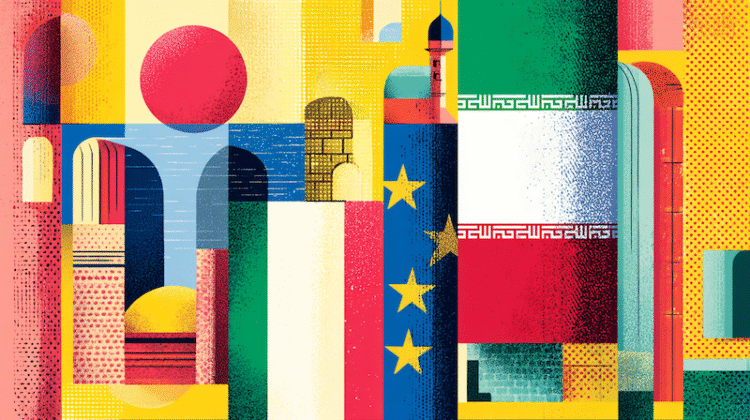Europe at a Crossroads: Social Democrats Must Reclaim Iran Diplomacy
 As US-Iran talks teeter, the EU’s once-pivotal diplomatic role risks fading. Social Democrats face a crucial moment to revive Europe’s voice.
https://www.socialeurope.eu/europe-at-a-crossroads-social-democrats-must-reclaim-iran-diplomacy
As US-Iran talks teeter, the EU’s once-pivotal diplomatic role risks fading. Social Democrats face a crucial moment to revive Europe’s voice.
https://www.socialeurope.eu/europe-at-a-crossroads-social-democrats-must-reclaim-iran-diplomacy

The unfolding United States-Iran talks present a critical juncture, yet the European Union finds itself in a disconcerting state of diplomatic inertia, its once dynamic engagement reduced to that of an observer. This passivity should galvanize Social Democrats, whose political lineage is deeply intertwined with the EU’s history of proactive diplomacy with Iran. Figures such as Catherine Ashton, who skilfully navigated the P5+1 negotiations, Federica Mogherini, the architect of the landmark 2015 nuclear deal, and Hannes Swoboda, whose groundbreaking 2013 visit to Tehran championed dialogue over isolation, all embody this legacy.
Today, however, this progressive heritage is jeopardized by inaction. Social Democrats no longer hold the reins of EU policy on Iran. The current EU High Representative for Foreign Policy, Kaja Kallas, a liberal and former Prime Minister of Estonia, echoes the hawkish rhetoric emanating from Israel, a stance that has never officially aligned with the EU’s own. Simultaneously, the head of the European Parliament’s Iran Delegation, a German Green politician, appears to be using her position primarily to advocate for regime change within Iran.
A renewed opportunity, however, is within reach. Europe must galvanize itself to reclaim its diplomatic voice, and Social Democrats are uniquely positioned to seize this moment. They must act decisively to ensure the EU actively shapes its future engagement with Iran, rather than passively accepting its trajectory.
The perils of inaction are significant. Should the US-Iran talks lead to a revitalized Joint Comprehensive Plan of Action (JCPOA), American companies, unencumbered by the EU’s cautious approach to sanctions, could well dominate Iran’s burgeoning markets, spanning sectors from oil to technology. This would inevitably marginalize European players such as Repsol and Airbus, with European jobs and economic growth bearing the cost. Conversely, a collapse of the talks could trigger escalating regional tensions, potentially leading to a nuclear-armed Iran or even outright conflict. The repercussions of such a scenario – energy crises, refugee flows, and heightened security threats at Europe’s borders – would disproportionately impact the EU. The current lack of a clear European vision risks rendering the bloc strategically irrelevant.
snip

